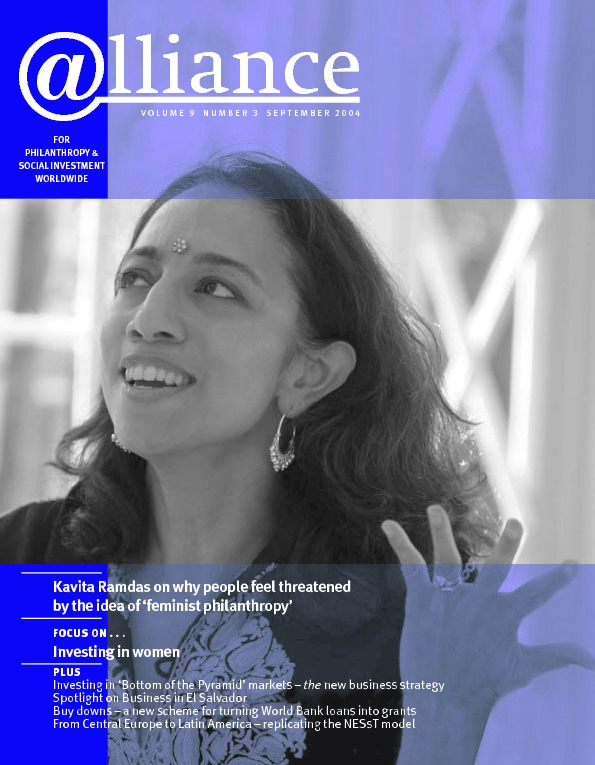How important are theories of social change to the work of foundations? How much can and should foundations plan and how far can they do so without depriving themselves of the flexibility to adapt to the rapidly changing circumstances under which they operate? The INSP session at the European Foundation Centre’s annual meeting in Athens at the end of May highlighted INSP’s work on theories of change and debated the advantages and disadvantages of a rigorously planned approach.
Lorna Lathram, former head of the Omidyar Foundation in California, explained the INSP computer-based theory of change tool, which guides the user through a series of questions in order to make explicit the underlying assumptions behind foundation activity and to help decision-makers in foundations structure their discussions about mission, vision, goals and activities.
In response, Stephen Pittam of the UK’s Joseph Rowntree Charitable Trust (JRCT) admitted that JRCT ‘thought about social change and how to effect it a lot’ but didn’t very often ‘sit down and really think about whether we have a model of social change, and try and articulate it’. However, he said, the questions the tool encourages foundations to ask of themselves and their would-be grantees and the questions JRCT asks grant applicants are almost identical. He wondered, though, whether logic is enough. There are issues, such as immigration, where deep prejudice often defies straightforward rationality. He also wondered whether the tool might tie foundations down too strictly. While clear aims and a strategy for achieving them are necessary, too tight a focus might hamper what he described as a foundation’s lightness of foot and opportunism.
‘We may not always be right’
Nor do foundations have a monopoly of knowledge. They have a limited perspective and must be prepared to be open. JRCT had just funded a project from the Islamic Human Rights Commission (IHRC), the first time that organization has received a grant from outside the Muslim community. ‘We received the application’, he said, ‘because IHRC had a sense that we might be open to considering their concerns. Giving that message of being open is very important.’
He also warned of the danger of overly proactive foundations foisting their agenda on to the groups they fund and the danger that the insistence on system might be perceived as one more means to control the work of funded groups. He asked provocatively: ‘Does having money give us the right to ferment social change? Is it acceptable for foundations to act as NGOs rather than offer support to NGOs?’
JRCT does have a vision and a strategy, he concluded, but this is broad enough to admit the ideas of others. ‘Pragmatism is often more effective than purity.’ There are many similarities between the INSP tool and the way JRCT works, but he felt that the emphasis falls in a different place in each.
For more information or to download the theory of change tool free of charge, see http://www.insp.efc.be
If you have interesting and challenging texts on strategic approaches to philanthropy that you’d like to include on the INSP website, please contact Dirk Eilinghoff at dirk.eilinghoff@bertelsmann.de
Exploring new ways of promoting philanthropy
As one of its next activities, planned for November or December in Mexico City, INSP will host a workshop entitled Promoting Philanthropy: New approaches and applications. The event will bring together leaders from the international philanthropic and non-profit sectors to explore a number of strategies that seem to promise to promote greater giving around the globe.
In recent years, the importance of the global non-profit sector – and the role of private resources in supporting it – has increased dramatically. At the same time, there is growing recognition that philanthropic institutions and individuals bring fresh ideas and approaches to social challenges, as well as new resources. But organized, institutionalized philanthropy remains limited. Despite a welcome increase in global philanthropic research and a number of successful, concerted efforts to ‘promote’ philanthropy, a deeper knowledge and a broader range of approaches is needed if global philanthropic potential is to be realized.
The November workshop will explore several such approaches. These are likely to include donor education, adviser outreach, peer engagement, social marketing and collective giving. INSP is planning a highly participatory, outcome-oriented workshop, with each participant expected to assume at least one defined role – case study author, presenter, facilitator, discussant, reporter, etc. The workshop will produce tangible tools and materials for promoting greater giving in a range of countries and cultures.
For more information contact efc@efc.be or see http://www.efc.be






Comments (0)